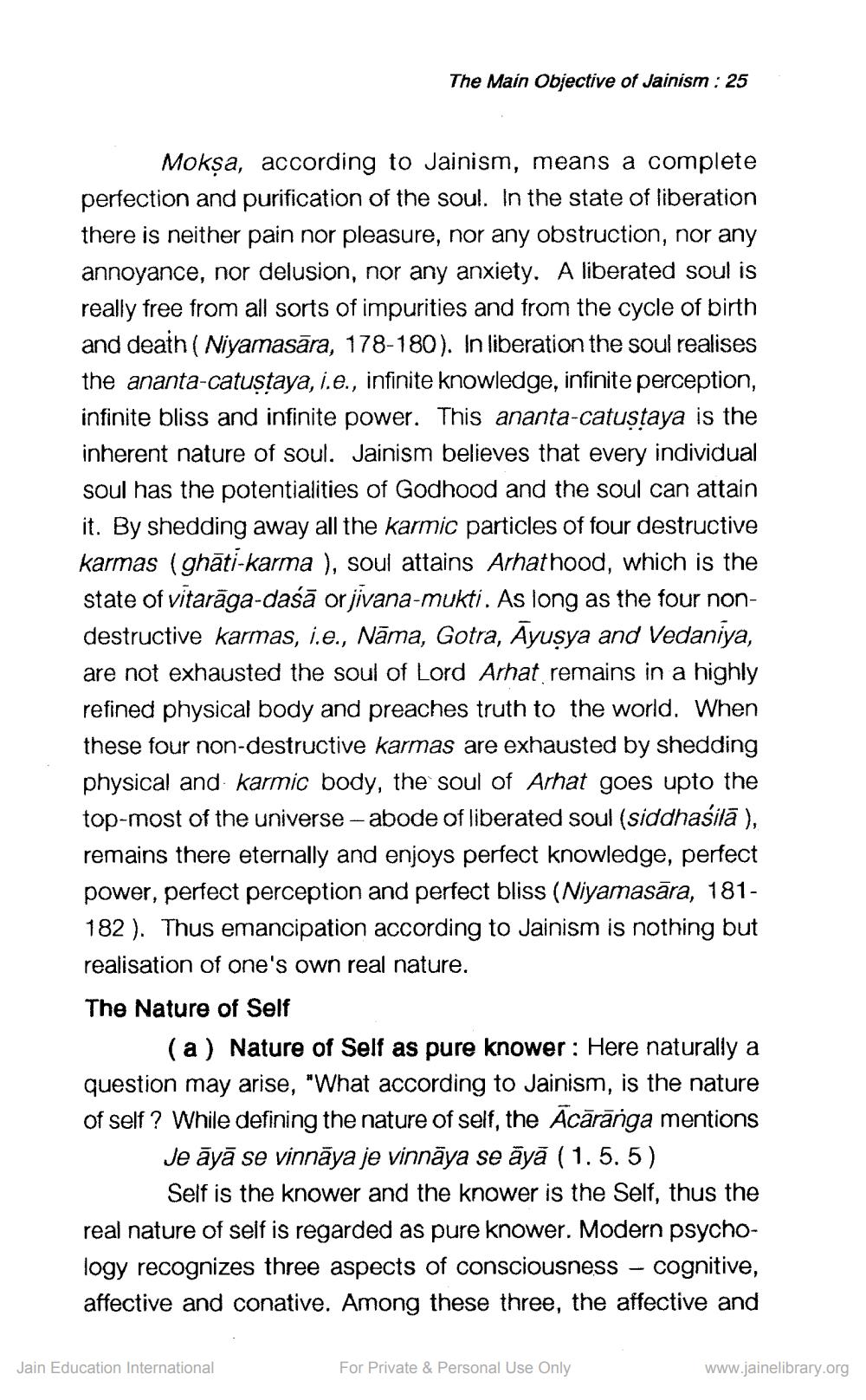________________
The Main Objective of Jainism : 25
Mokşa, according to Jainism, means a complete perfection and purification of the soul. In the state of liberation there is neither pain nor pleasure, nor any obstruction, nor any annoyance, nor delusion, nor any anxiety. A liberated soul is really free from all sorts of impurities and from the cycle of birth and death ( Niyamasāra, 178-180). In liberation the soul realises the ananta-catustaya, i.e., infinite knowledge, infinite perception, infinite bliss and infinite power. This ananta-catustaya is the inherent nature of soul. Jainism believes that every individual soul has the potentialities of Godhood and the soul can attain it. By shedding away all the karmic particles of four destructive karmas (ghāti-karma ), soul attains Arhathood, which is the state of vitarāga-daśā or jivana-mukti. As long as the four nondestructive karmas, i.e., Nāma, Gotra, Ayuşya and Vedaniya, are not exhausted the soul of Lord Arhat remains in a highly refined physical body and preaches truth to the world. When these four non-destructive karmas are exhausted by shedding physical and karmic body, the soul of Arhat goes upto the top-most of the universe - abode of liberated soul (siddhasilā ), remains there eternally and enjoys perfect knowledge, perfect power, perfect perception and perfect bliss (Niyamasāra, 181182). Thus emancipation according to Jainism is nothing but realisation of one's own real nature. The Nature of Self
(a) Nature of Self as pure knower: Here naturally a question may arise, "What according to Jainism, is the nature of self? While defining the nature of self, the Ācāranga mentions
Je āyā se vinnāya je vinnāya se āyā (1.5.5)
Self is the knower and the knower is the Self, thus the real nature of self is regarded as pure knower. Modern psychology recognizes three aspects of consciousness - cognitive, affective and conative. Among these three, the affective and
Jain Education International
For Private & Personal Use Only
www.jainelibrary.org




